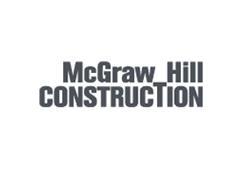Office Construction May Be Bright Spot for 2009
New York, NY, Oct. 31, 2008--Some of the financial problems of the residential market are beginning to spill onto the commercial side, according to Robert Murray, vice president of economic affairs for McGraw Hill Construction.
He spoke at the recent Outlook Executive Conference: '09 Industry Forecasts and Trends event
"For developers, loans are getting personal," Murray said, adding that many commercial loans now contain provisions for the lender to go after the borrowers personally in the event of a default. However, so far, he said defaults are rare.
"We haven't seen anywhere near the number of commercial defaults that have been present on the residential side," he said.
One factor playing into commercial construction is declined consumer confidence.
"Basically, we're seeing the impact of slower retail sales," he said, pointing to the fact that Home Depot closed 15 stores earlier this year (leading to more available commercial facilities). Murray predicted the store sector will drop 15 percent more in 2009.
In the area of hotels, Murray suspects this will drop as well.
"The expectation is that this market is due for a pretty substantial fall-out," he said.
Offices, however, were one bright point in the presentation.
"If you had to pick one area that avoided the typical boom and bust cycle, it would be offices," he said. However, the fact that many layoffs have occurred of late, even in the office sector (he pointed to Goldman Sachs as one of many examples) he suspects this area of construction to lag as well-but not to experience a major bust.
"Because we avoided that kind of surge that we had in the prior decade, the decline is going to be less severe," he said.
In making predictions for the building of colleges and universities, Murray suggested that this is a difficult area in which to forecast.
"The question is, will they, too, be subject to the financial climate?" he asked.
Hospitals also were a somewhat positive spot. Murray noted that in 2007, hospital building dropped, but rose again in 2008.
Construction for the manufacturing industry, on the other hand, is likely to see a rapid drop.
"The monetary volume of activity has just soared," he said. "Overall, our monetary volume is expected to be weakening [in this area] as well in 2009."
Overall, Murray looks to see a 7 percent decrease in commercial construction in 2009; on top of a 12-percent decline in 2008.
Murray noted that this year's forecast has been one of the most difficult, saying that he and his staff revised the forecast several times based on recent events.
"This was a tough forecast," he said. "This is a cyclical business … There are still pluses."
Norbert Young, president of McGraw Hill Construction, ended the host of presentations with a list of what he sees as four positive indicators for the economy and for the construction climate:
1. The powerful influence of green;
2. The growth in virtual design and construction;
3. The power of immigration; and
4. The fact that a new president soon will be elected.
